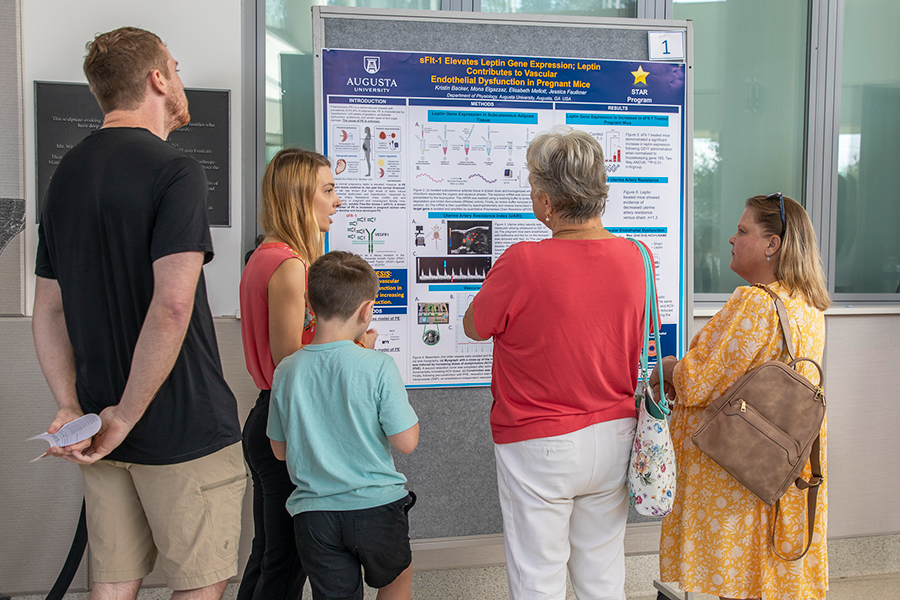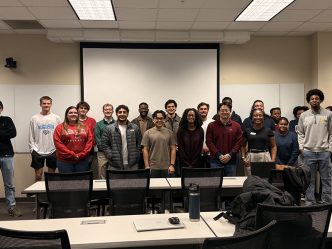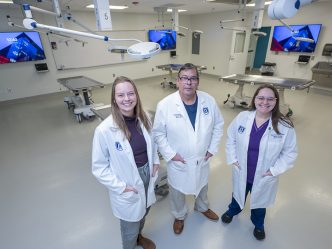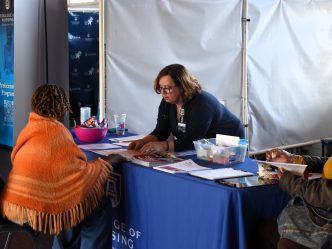When Paige Sheppard enrolled in the Bachelor of Science in Nursing program through Augusta University’s College of Nursing, she admitted she wasn’t aware of the available research opportunities, especially for undergraduate students. In fact, her view of research was that it was something that happened after a student completed their undergraduate degree and entered their profession.
Now that she has taken part in the Student Training And Research (STAR) Program through The Graduate School at Augusta University, she has a new outlook on not only what research is, but what she can do after graduation.
“I feel like we typically focus more on the clinical side in nursing, but it’s really important to get into the details of research and walk alongside the faculty who are conducting it,” Sheppard said. “I had an amazing mentor, Dr. Lynn Glenn, and Dr. Pamela Cromer got me involved in the community aspect of research. The nursing profession is a very evolving profession, and research helps us look at ways we can improve patient outcomes.”
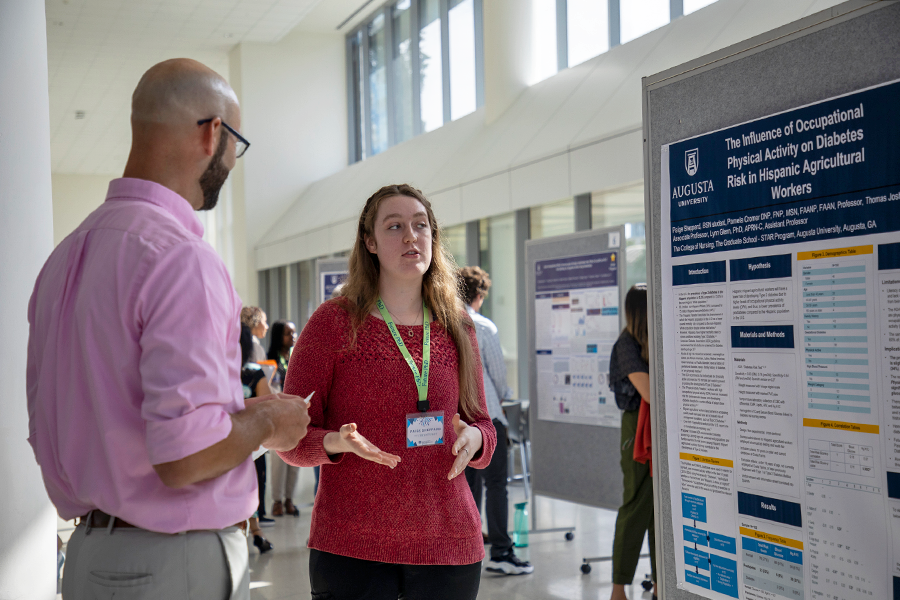
Sheppard was able to combine her research with her passion for helping the community by taking part in AU’s annual Costa Layman Health Fair in July.
“Conducting research is not only about staying close to home, it’s also about how you can expand care into the community,” Sheppard said.
“It is fulfilling to become a mentor to help guide students to the many opportunities and paths associated with a career in nursing,” said Pamela Cromer, DNP. “This research program not only provides greater awareness of the roles, responsibilities and skill sets that come with career advancement, it also introduces them to the regulatory and business aspects surrounding research and community engagement, providing invaluable insight often not realized for many years into the profession.”
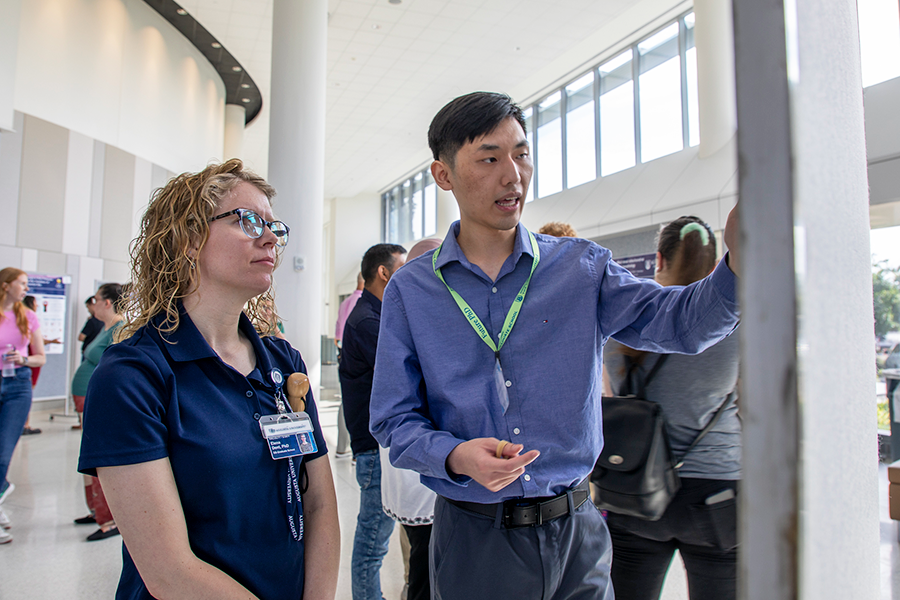
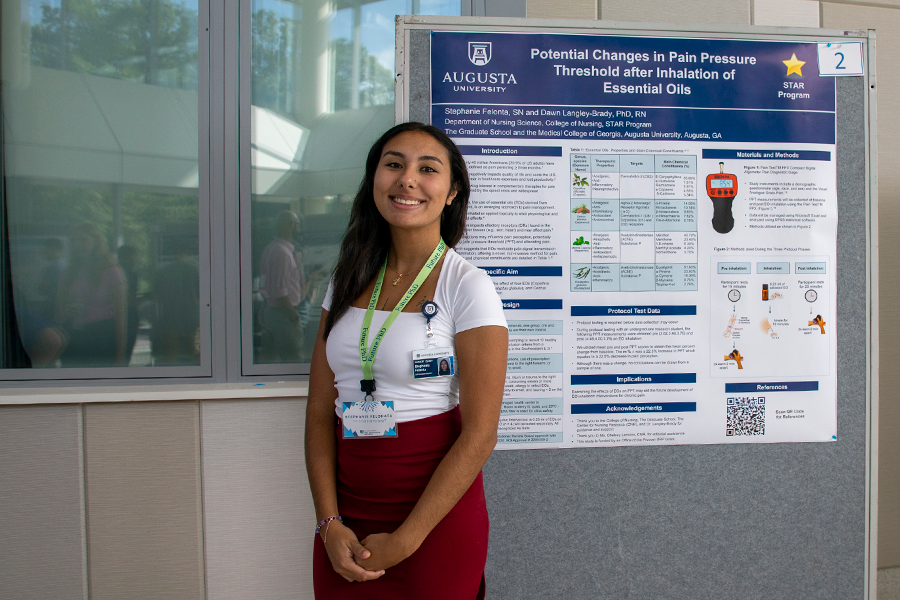
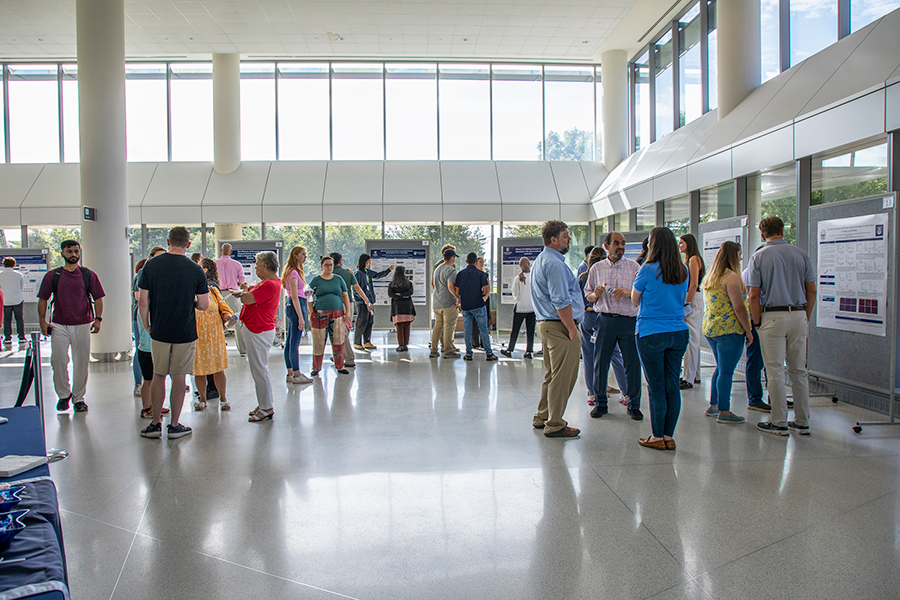
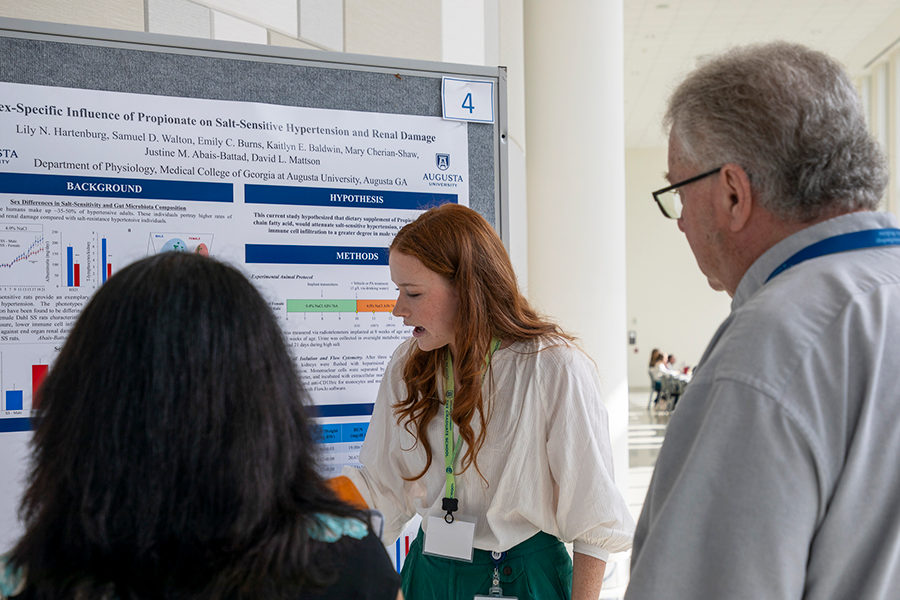
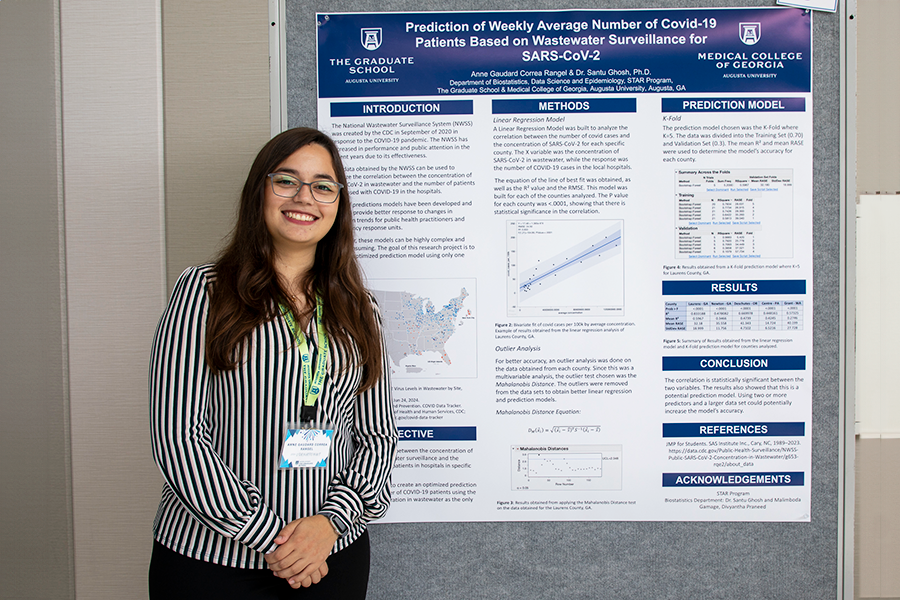
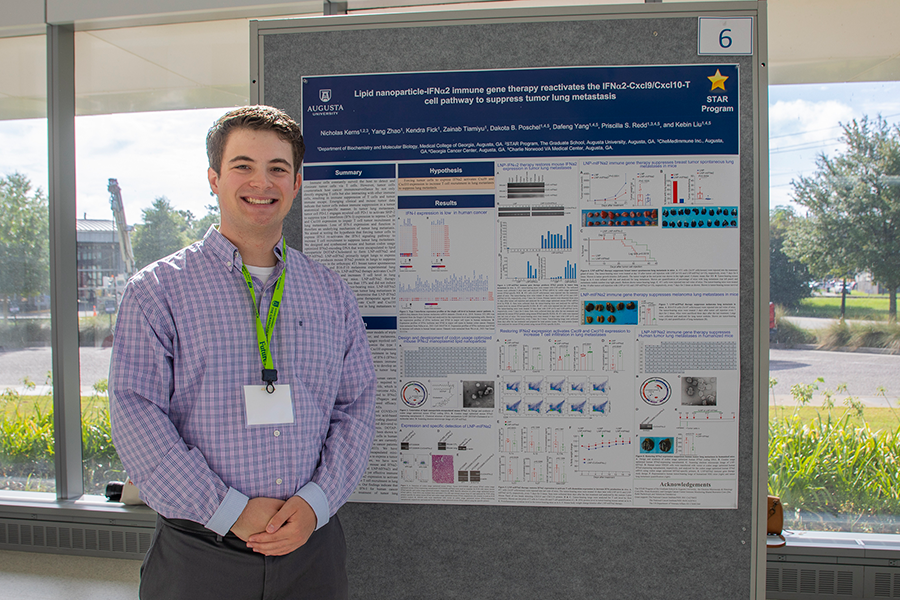
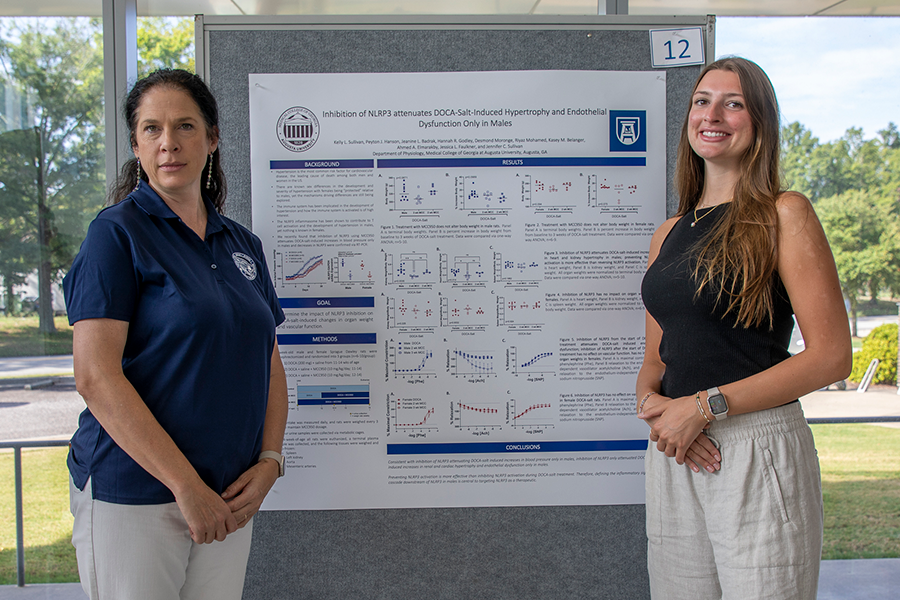
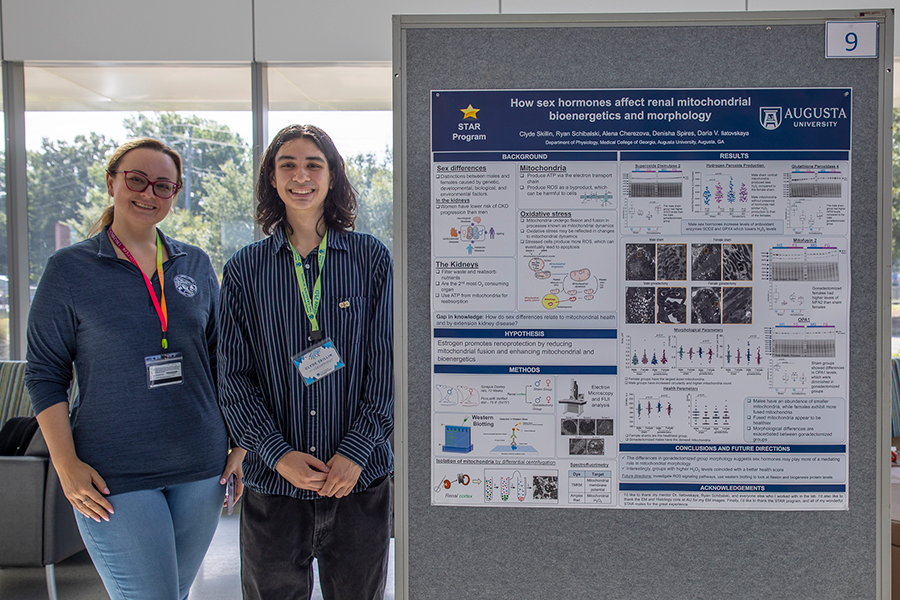
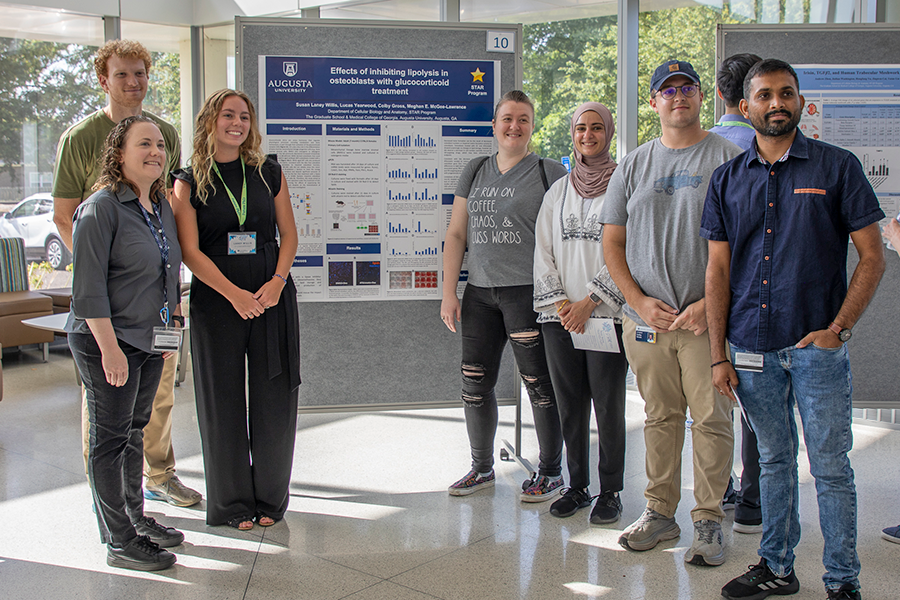
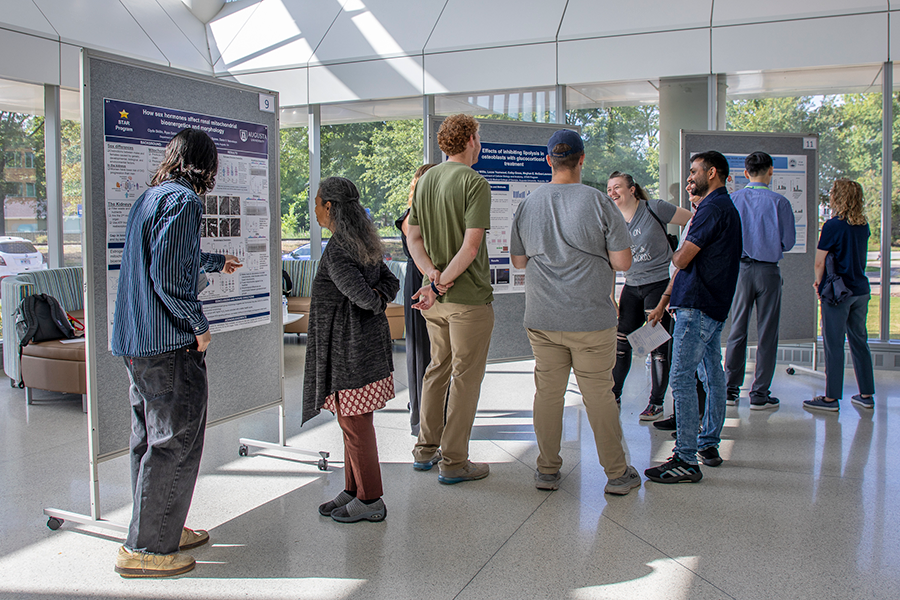
The STAR program is designed to provide outstanding hands-on research opportunities for undergraduate students interested in pursuing a research PhD degree in biomedical sciences, nursing or biostatistics at Augusta University. STAR participants engage in research in a supportive environment under the guidance of an AU faculty member and their research team.
This year, 11 undergraduate students took part in the program, including five from AU: Sheppard and Stephanie Felonta from the College of Nursing; Anne Kamau, a biology major in the College of Science and Mathematics; and Kristin Backer and Grace Neisweder, both majoring in Cell and Molecular Biology through the College of Science and Mathematics. The program also attracted students from the University of Georgia, Georgia Southern University, Hardin-Simmons University, Lee University, Fordham University and College of Charleston.
“These students don’t just shadow and watch; they are actually immersed in a research project and at the end of the program they have a real sense of accomplishment,” said STAR Program Director Patricia Cameron, PhD. “Throughout the summer they gain experience in learning research techniques, analyzing data, communicating their findings and fostering strong mentor-mentee relationships making them better prepared for the next step in their academic and research journey.”
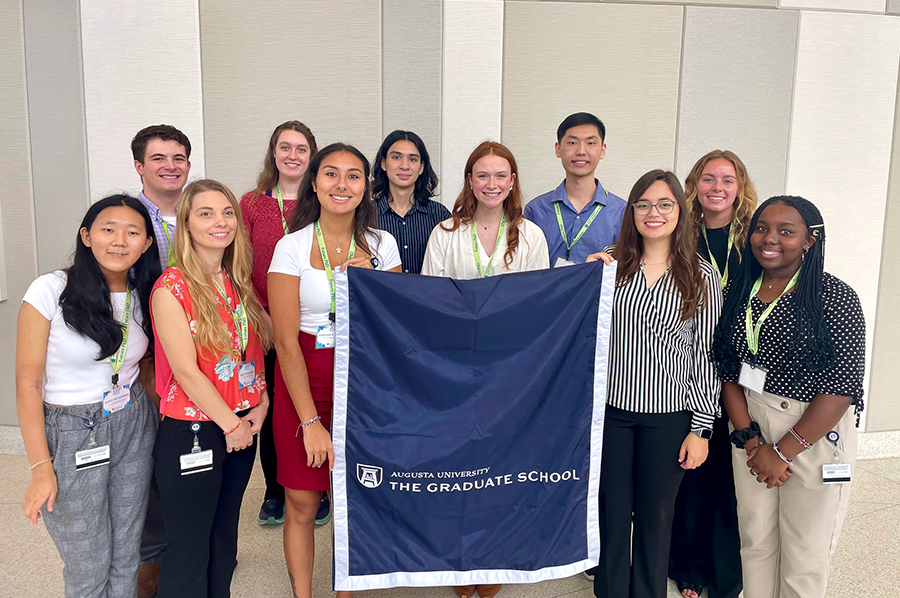
Jennifer C. Sullivan, PhD, interim provost and dean of The Graduate School said the STAR Program’s goal is to bring in students who have a demonstrated interest in the fields of study AU offers and get them onto campus.
“It is hard to beat what AU has to offer between the research our faculty are engaged in, the access to the Medical College of Georgia and Wellstar MCG Health, and our facilities,” said Sullivan. “As soon as the students visit and see the facilities and experience the one-on-one interactions with faculty, it’s easier to get them to commit to AU to further their education.”
For biology major Kamau, she had already been working with Benard Ogola, PhD, in his lab.
“I started undergrad research in the fall of my second year,” Kamau said. “I wanted to get more hands-on experience in a lab that looks at sex differences because I’m planning to pursue a career studying women’s health, so I joined Dr. Ogola’s lab as his first undergrad student.”
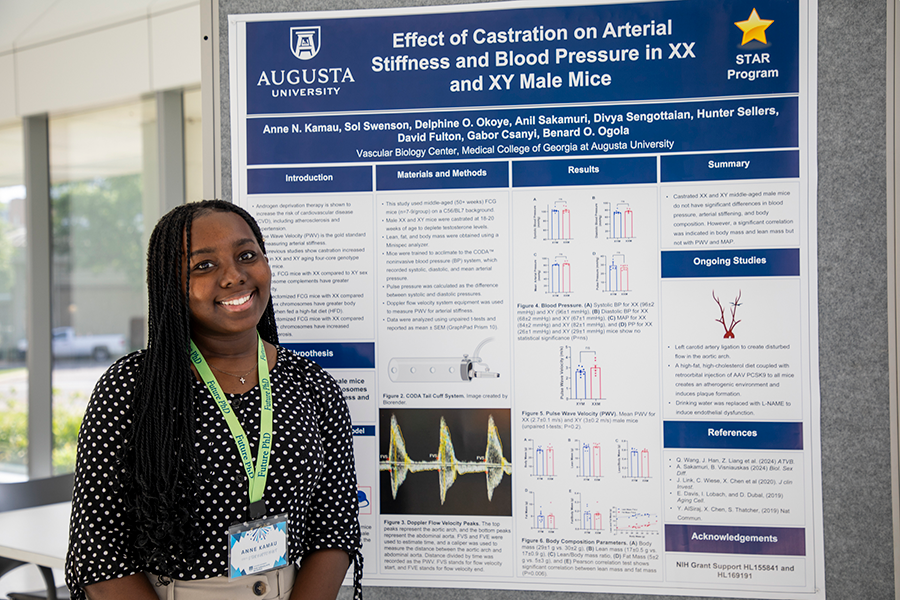
The summer-long STAR experience includes workshops that showcase interdisciplinary, collaborative and team science approaches. The program also provides opportunities for networking, professional development and guidance on applying to a PhD program. The program concludes with a poster session to showcase the research accomplishments of the participants, who are known as STARs.
“The poster session engages everybody, and the students have the opportunity to talk to people across the campus,” said Sullivan. “Our faculty take the time to work with the students to analyze the data, develop the posters and ensure the STARs understand the nuances of the projects and are prepared to answer questions. It’s a great capstone project for all their hard work.”
Applications for the Summer 2025 session open in September with a deadline of submission by Jan. 27, 2025. Visit the STAR webpage for more information and to apply.
 Augusta University
Augusta University
